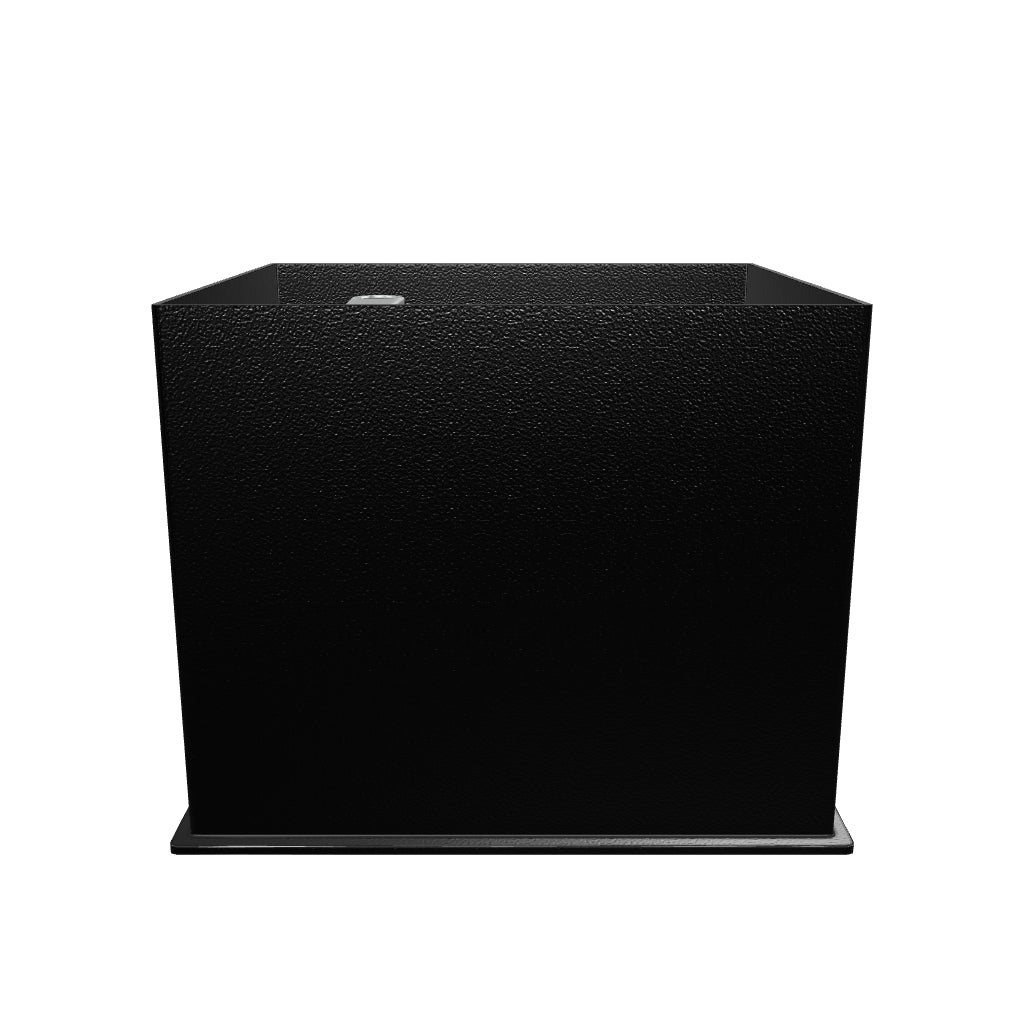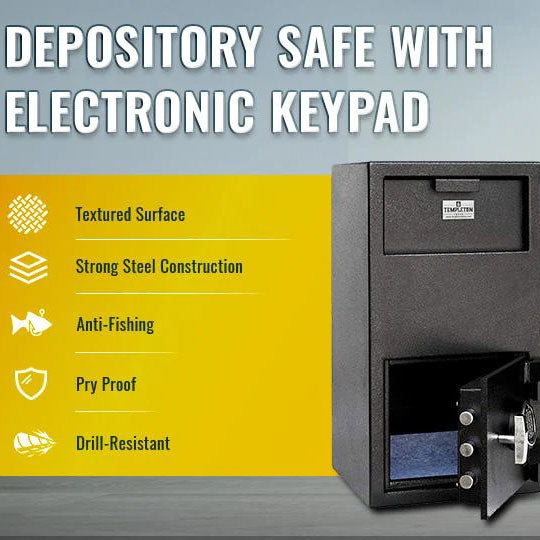The Role of Security Safes in Courthouses' Evidence Storage
Courthouses deal with vast amounts of sensitive and potentially dangerous evidence, from documents to weapons, narcotics, and other physical items. The theft, tampering, or loss of this evidence could derail cases, damage the credibility of the legal system, and deny justice.
Preventing Tampering and Theft
One of the main reasons courthouses invest in evidence storage safes is to protect against tampering and theft. Whether it's a high-profile criminal case or a civil matter, any compromise of evidence can cause serious consequences. These safes are built to ensure that only authorized personnel can access the evidence, and they often come with advanced locking mechanisms like biometric systems, digital keypads, and reinforced steel construction.
By securing evidence in a reliable safe, courthouses ensure that no unauthorized person can alter or steal evidence, keeping the integrity of every case intact.
Maintaining Chain of Custody
The chain of custody refers to the documentation that tracks the handling of evidence from the moment it’s collected to the time it's presented in court. Any break in this chain could render the evidence inadmissible in court, potentially leading to acquittals or wrongful convictions. Security safes for evidence storage ensure that all items are properly secured and that access is restricted to authorized personnel only, making it easier to maintain an unbroken chain of custody.
With clear logs of who accessed the safe and when, these safes help ensure accountability and reduce the likelihood of mishandling evidence.
Features of Courthouse Security Safes
Not all safes are created equal, especially when it comes to evidence storage. Courthouses require safes with specialized features to ensure the safety and security of sensitive items.
High-Security Locking Mechanisms
One of the standout features of evidence storage safes is the advanced locking mechanisms they use. Courthouses typically opt for safes with digital or biometric locks, which offer greater security than traditional key-operated locks. Biometric locks, in particular, allow only individuals with registered fingerprints to access the safe, adding an extra layer of security.
Fire and Water Resistance
Beyond theft and tampering, courthouses also need to consider other risks such as fire or flooding. Evidence stored in paper form or digital media can be destroyed by fire or water damage. That's why many courthouses invest in fireproof and waterproof safes, which can withstand extreme conditions and protect evidence even during natural disasters or unforeseen accidents.
Secure Compartments
Some safes are designed with multiple compartments, which can be useful for courthouses dealing with evidence from multiple cases. These separate compartments allow for the organized storage of different types of evidence, reducing the risk of items becoming mixed up or mishandled. This design also helps to simplify access, as authorized personnel can retrieve evidence for a specific case without disturbing items from other cases.
How Security Safes Ensure Compliance in Evidence Storage
Courthouses must adhere to strict guidelines when it comes to the storage and handling of evidence. Failing to comply with these standards can lead to legal challenges and damage the credibility of the judicial system. Security safes for evidence storage play a vital role in helping courthouses meet these compliance requirements.
Meeting Federal and State Regulations
Many federal and state laws govern the handling and storage of evidence, especially in criminal cases. Regulations often dictate how long evidence must be stored, who can access it, and how it should be protected. Evidence storage safes are designed to meet these regulations, offering the security features necessary to ensure compliance.
Courthouses often choose safes that are certified by industry standards, such as UL (Underwriters Laboratories) or the Department of Justice’s National Institute of Justice (NIJ), ensuring that they are using equipment that meets legal requirements.
Protecting Sensitive Information
In addition to physical evidence, courthouses also need to store sensitive information, such as confidential legal documents, personal information of witnesses, and other data critical to ongoing cases. Security safes ensure that this information is protected from unauthorized access, helping courthouses comply with laws like the Health Insurance Portability and Accountability Act (HIPAA) and other privacy regulations.
Best Practices for Courthouses Using Evidence Storage Safes
While having an evidence storage safe is crucial, it’s just as important to use it correctly. Following best practices can help courthouses maximize the effectiveness of their safes and ensure that evidence is always properly protected.
Limit Access to Authorized Personnel
Not everyone working in a courthouse needs access to the evidence storage safe. Limiting access to authorized personnel reduces the risk of tampering or mishandling of evidence. Biometric safes make this even easier by ensuring that only pre-approved individuals can unlock the safe.
Regular Audits and Maintenance
Security safes require regular maintenance to ensure they’re functioning correctly. Courthouses should schedule regular audits to check the condition of their safes and the evidence stored inside. This also provides an opportunity to update access logs and ensure that all access points are accounted for. In addition, maintenance on locks, fireproofing materials, and waterproof seals should be performed periodically to keep the safe in top condition.
Organized Evidence Storage
It’s important to store evidence in an organized manner, whether it's physical evidence, legal documents, or digital records. Many courthouse safes come with customizable shelving options that allow for the neat and organized storage of different types of evidence. Organized evidence storage not only improves efficiency but also reduces the risk of losing or damaging important materials.
Choosing the Right Evidence Storage Safe for Your Courthouse
When selecting a security safe for courthouse evidence storage, it’s important to consider the unique needs of the facility. Different courthouses may require safes of varying sizes, capacities, and security features. For example, a courthouse that handles large amounts of physical evidence, such as weapons or narcotics, may need a larger, more secure safe than one that primarily handles documents.
Courthouses should also factor in budget constraints, compliance requirements, and the types of cases they handle when selecting an evidence storage safe. Consulting with security professionals or safe manufacturers can help courthouses find the right solution.
Safes Built for Courthouse Security
Looking for reliable safes to protect your courthouse's most sensitive evidence? Templeton Safes offers a range of high-security options designed specifically for secure evidence storage. Check out these three top picks:
-
T871 Extra Large Double Independent Locking Doors Depository Drop Safe
With dual locking doors and electronic keypads, this extra-large safe ensures that only authorized personnel can access different compartments. Ideal for securely storing sensitive materials.
Learn more -
T872 Extra Large 3-Door Depository Drop Safe
This safe features three independent locking doors, allowing multiple compartments for organized evidence storage. With electronic keypads and reinforced construction, it's perfect for high-volume courthouses.
Learn more -
T873 Tall Depository Drop Safe with Internal Lock Box
This tall safe offers multi-user support and an internal lock box for extra protection. Ideal for courthouses that require both versatility and security in their evidence storage solutions.
Learn more
Invest in the best protection for your courthouse evidence with Templeton Safes!
The Importance of Evidence Storage Safes in Courthouses
Evidence storage is an essential part of the judicial process, and security safes play a key role in ensuring that courthouses can protect sensitive materials and maintain the integrity of their cases. By preventing tampering and theft, maintaining chain of custody, and ensuring compliance with industry regulations, evidence storage safes help courthouses operate smoothly and uphold justice.
Investing in high-quality security safes is an investment in the legal system’s credibility. With the right safe in place, courthouses can be confident that their evidence remains secure from collection to courtroom presentation.






























